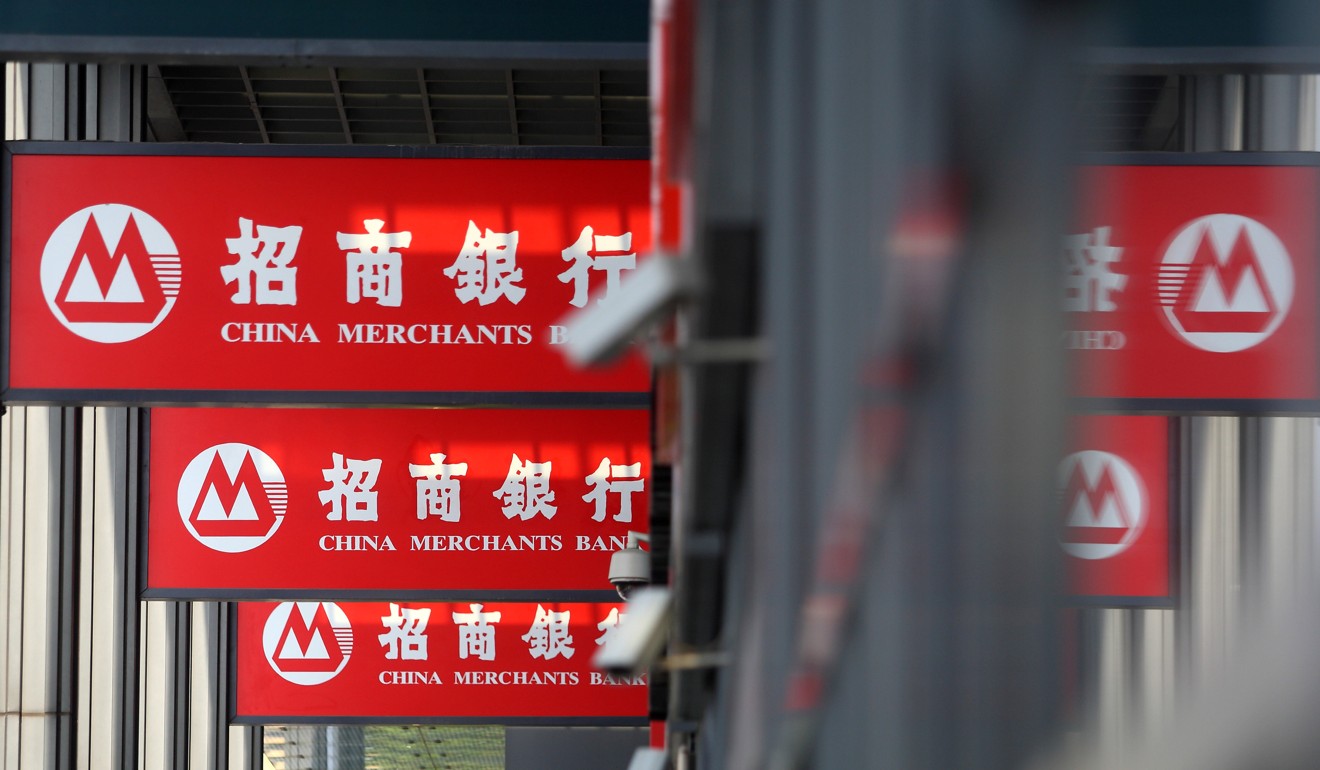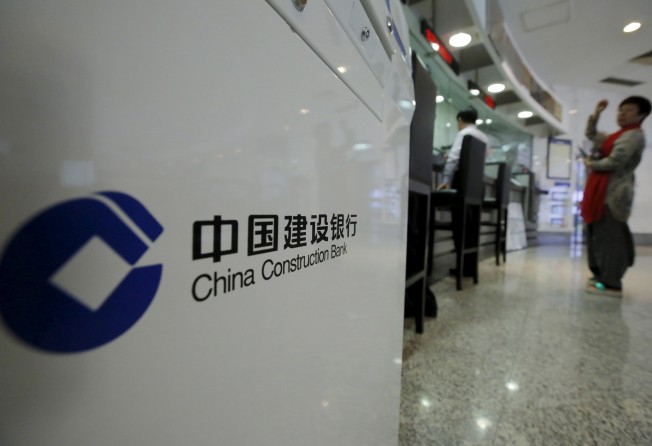
China Construction Bank and China Merchants Bank ace stress test conducted by DBS Bank
- China’s banking industry will need to raise 2 trillion yuan (US$291 billion) to replenish their capital in the event of three bear scenarios

China Construction Bank and China Merchants Bank are seen as the two most resilient mainlands banks capable of withstanding an extreme economic downturn because of their strong capital base, according to a stress test conducted by DBS Bank.
Only two other banks – Chongqing Rural Commercial Bank and Bank of Shanghai – passed the Singaporean bank’s stress test involving a total of 19 lenders, which represent 76 per cent of the assets in China’s banking industry.
China’s banking industry will need to raise 2 trillion yuan (US$291 billion) to replenish their capital in the event of three bear scenarios, Ken Shih, a banking and insurance analyst with DBS told a press conference on Wednesday in Hong Kong to announce the results of the study.
Specifically, the scenarios suppose a big drop in annual economic growth to 4 per cent (from more than 6 per cent currently) in 2020, to be accompanied by the bursting of a residential credit bubble that could trigger a 31 per cent plunge in property prices, and non-performing loans rate for private firms spiking by 5 percentage points from the current level to 10 per cent.

DBS conducted the study, zeroing in on these 19 banks, after gathering feedback from clients on investing in Chinese banking stocks.
On the prospects of the banks’ share prices involved in the stress tests, Shih said that he “likes China Construction and China Merchants for their low exposure to risky segments and sufficient capital level to cover credit risks”.
He added Bank of Shanghai could benefit from its shift in focus to retail banking and strength in fee-based income, while Chongqing Rural’s outlook depends on the smooth listing of its A shares due later this year.
Chinese banks have been in the media spotlight this week for working with a Hong Kong front company accused of laundering more than US$100 million for North Korea.
On Tuesday, the Washington Post reported that a US district judge had found three Chinese banks for refusing to comply with subpoenas in an investigation into North Korean sanctions violations. Although the report did not identify the banks, but details in the court ruling align with a 2017 civil forfeiture action against Bank of Communications (Bocom), China Merchants Bank and Shanghai Pudong Development Bank (SPDB), with the possibility that SPDB could be cut off from the US financial markets.
“We still think the chance is quite slim for the US to pass a final ruling to sanction the banks. But this is actually a political risk rather than a credit risk, thus difficult for us to calculate,” Shih said.
US assets account for 5 per cent of China Merchants’ and Shanghai Pudong’s total assets, while Bocom’s exposure stands at 10 per cent.
Most of their US assets are in the form of US dollar loans and trade finance, he said, adding that Shanghai Pudong’s credit profile was relatively weaker.
On Wednesday the share prices of China Merchants, Bocom and Shanghai Pudong recovered from Tuesday’s plunge after the three banks issued separate statements dismissing allegations they were in breach of sanctions against North Korea. They said having been following the UN sanctions resolution, and were operating in accordance with international and Chinese laws.
Their shares continued rising on Thursday, with China Merchants and Bocom up 2.3 per cent and 0.5 per cent, respectively in Hong Kong. Shanghai Pudong’s A shares rose 0.7 per cent in Shanghai.
The banks’ statements were supported by the China Banking Association, a semi-official organisation that operates under the auspices of the China Banking and Insurance Regulatory Commission.
Bu Xiangrui, the association’s chief legal counsel, said that Chinese banks should not follow the directives of the US court because the latter had not sought permission from the Chinese authorities to collect information.
“They essentially force companies or individuals in other countries to follow the US law, which violates the judicial sovereignty of other countries and does not conform to the spirit of international law,” Bu said.